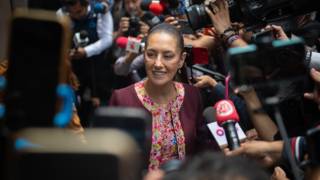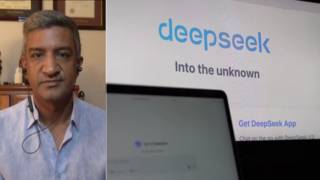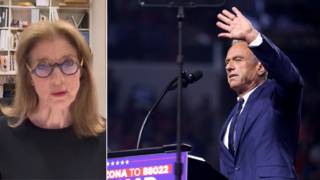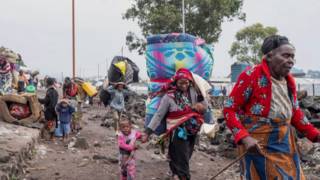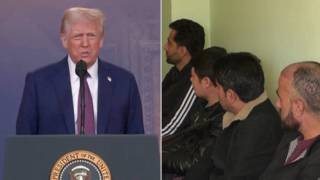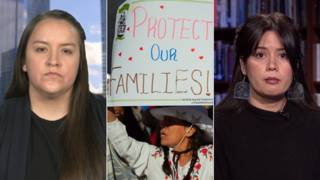
Immigration and Customs Enforcement is ramping up raids across the United States, arresting more than 1,000 people in operations Monday after detaining a similar number on Sunday. Immigrant communities and their allies say the raids violate human rights, the Constitution, and are being carried out in retaliation against sanctuary cities that have policies aimed at protecting undocumented residents. In Chicago, immigrant rights organizer Dulce Guzmán says there is “palpable fear and anxiety among families,” but she lauds elected officials, including Mayor Brandon Johnson and Governor J.B. Pritzker, for pushing back against what she says is the Trump administration’s “white supremacist agenda.” Meanwhile, in Newark, New Jersey, Mayor Ras Baraka has condemned an ICE raid last week at a seafood depot where federal agents took three people into custody, including a U.S. military veteran. “Simply being in proximity to their target, which is immigrant communities, is enough to arrest and detain you, too,” says Amy Torres, executive director of the New Jersey Alliance for Immigrant Justice. She encourages people to know their rights, such as the ability to record ICE agents and to refuse orders without a warrant. “One of their most effective tools is fear and panic,” Torres says.
This content originally appeared on Democracy Now! and was authored by Democracy Now!.
This post was originally published on Radio Free.
